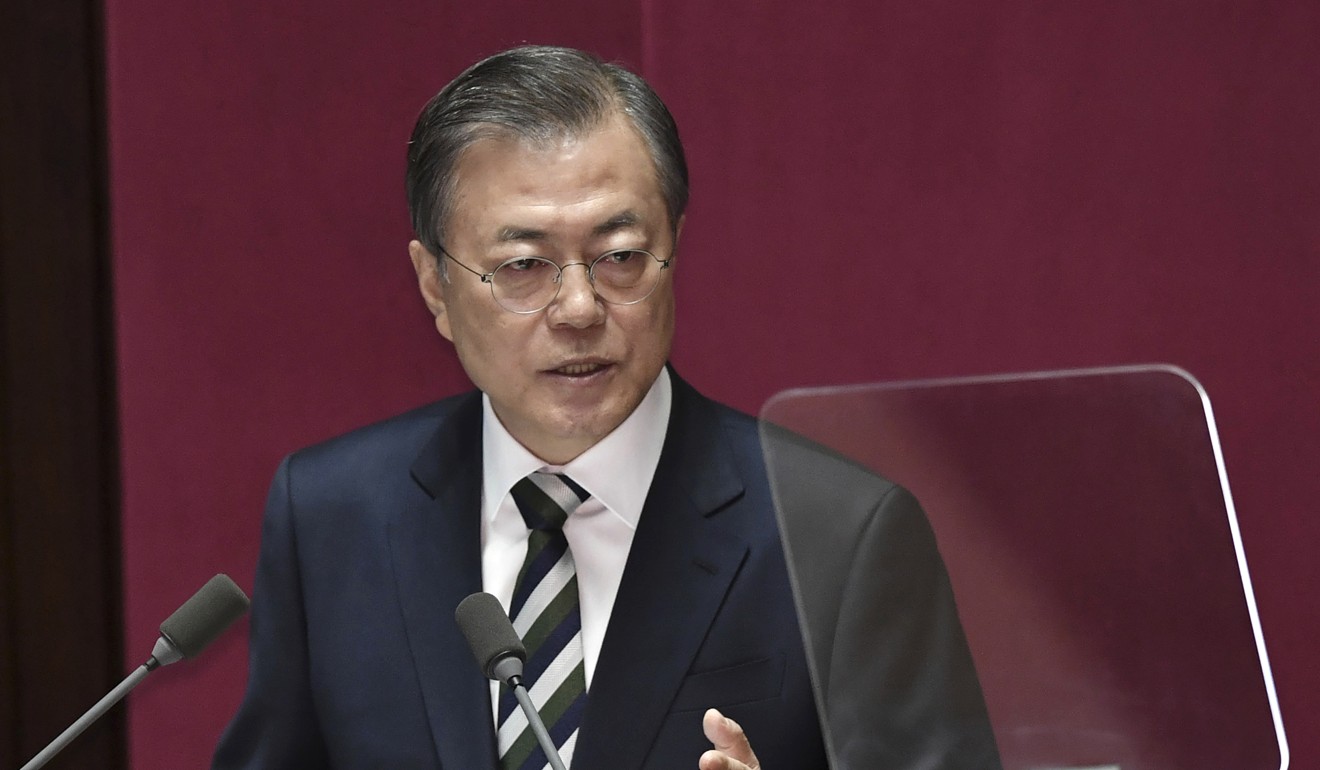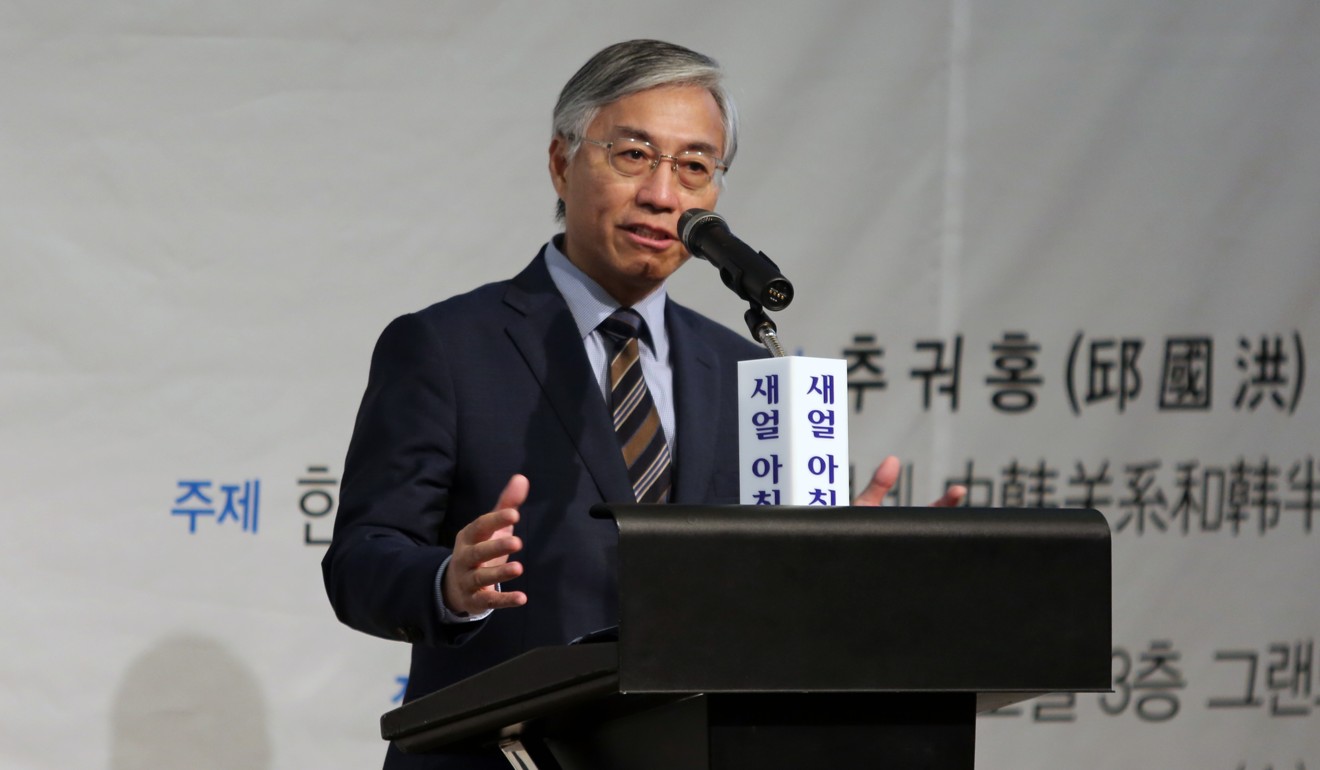
China’s top diplomat Wang Yi to visit South Korea as Beijing seeks to repair ties
- Foreign minister will spend two days in Seoul and is expected to meet President Moon Jae-in
- It’s his first visit since relations soured over anti-missile system in 2017

China’s top diplomat will visit Seoul on Wednesday, as Beijing seeks to mend ties with its neighbours amid increasing strategic rivalry with Washington.
Foreign Minister Wang Yi will spend two days in Seoul at the invitation of his South Korean counterpart Kang Kyung-wha, according to the Chinese foreign ministry. Wang is expected to meet South Korean President Moon Jae-in on Thursday.
It will be the first visit to the country by the Chinese foreign minister after ties between Beijing and Seoul soured over South Korea’s deployment of the Terminal High Altitude Area Defence (THAAD) anti-missile system in 2017.
Seoul said the system aimed to deter threats from North Korea, but Beijing saw it as a security threat and the dispute led to Chinese boycotts of South Korean companies and their products and an unofficial Chinese ban on tour groups going to the country.

Observers said Wang’s visit could pave the way for a potential trip by President Xi Jinping, who last went to South Korea in 2014.
“Since the THAAD [dispute] broke out, high-level Chinese officials have barely visited South Korea even after President Moon visited Beijing in 2017,” said Lee Jung-nam, a professor with the Asiatic Research Institute at Korea University in Seoul. “The situation may improve after Wang’s visit.”
Lee said Wang was expected to lay the groundwork for a possible visit by Xi early next year.
The foreign minister’s trip also comes three weeks ahead of a trilateral leaders’ summit in Chengdu, Sichuan province, where Chinese Premier Li Keqiang will host Japanese Prime Minister Shinzo Abe and South Korea’s Moon. Abe and Moon will hold a separate meeting on the sidelines of the summit.
Beijing is hoping to push forward negotiations on a free-trade agreement with Japan and South Korea to hedge against mounting trade pressure from the United States, as the world’s two largest economies remain locked in a trade war.
Rivalry between Beijing and Washington has intensified in areas from trade to technology to security, and observers said that had prompted China to seek better ties with its neighbours – with traditional US ally South Korea a priority.
Moon, meanwhile, would be looking to Beijing to offset pressure from Washington over a defence cost-sharing deal under which Seoul has been asked to pay more than five times what it agreed to pay this year for hosting the US military, according to Cheng Xiaohe, an associate professor at Renmin University of China in Beijing.
“Both sides have their own initiatives to improve bilateral relations,” Cheng said. “But practical improvement may depend on a possible visit by Xi and any further breakthrough in the trilateral FTA talks.”

But tensions remain between China and South Korea, including over US plans to deploy ground-based missiles in the Asia-Pacific region.
In a speech to South Korea’s National Assembly last week, Chinese ambassador Qiu Guohong warned of “consequences” when a lawmaker asked about a possible request from the US to base intermediate-range missiles in the country, according to the Chosun newspaper.
Cheng expected the US missile plans would be on the agenda when Wang met security and diplomatic officials in Seoul.
“This will be discussed as a precaution, to prevent any new trouble emerging in the bilateral relationship,” Cheng said. “But after THAAD, South Korea is likely to be more cautious and restrained when it makes such a decision.”
Lee, from Korea University, said the ongoing unrest in Hong Kong was also likely to be discussed during Wang’s meetings with officials in Seoul, following clashes between Chinese and local students over the issue at universities in South Korea.
Police in Seoul said they were investigating five Chinese students accused of vandalising “Lennon Walls” – where messages of support for Hong Kong’s pro-democracy protesters are posted – at five South Korean universities last month.